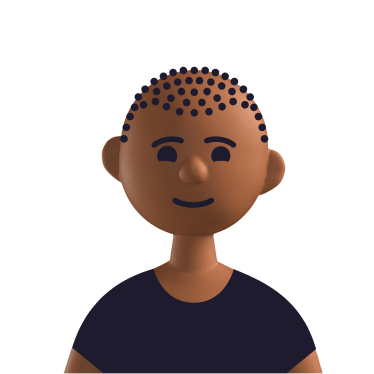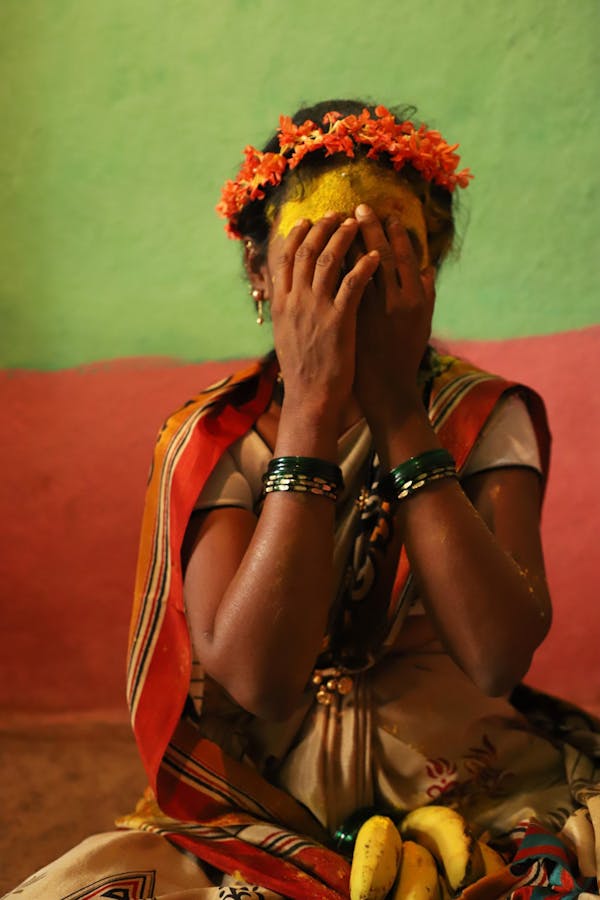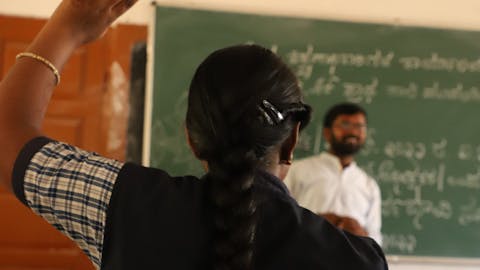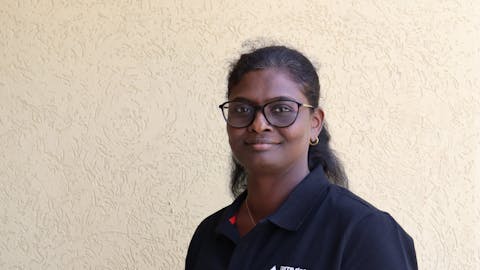

Children Empowerment for Getting Out of the Devadasi System

Tackling harmful norms, empowering children from Devadasi communities
In socio-economically marginalised Devadasi communities from North Karnataka, harmful norms force adolescent girls into sexual exploitation. We fight for the rights of these girls and enrol them in schools. We provide them opportunities for alternative means of livelihood and teach them to speak up against injustice.
-

Thangaperumal Ponpandi
Country Manager India“Children of Devadasis are a very vulnerable group who are exploited on the basis of a harmful tradition. We work to ensure that they lead a life filled with dignity and possibilities”
Background
Historically, the Devadasi practice involved young girls being consecrated as performing artists in temples. However, with time exploitation seeped into the system forceing girls into sexual exploitation in certain marginalised Devadasi communities. Clandestine dedication ceremonies perpetuate this abuse, and all children in these communities face violence, stigma, and hardship.
It is estimated that there are about 80,000 Devadasi women in North Karnataka, twenty percent of whom are under the age of 18. In many cases, the girls are even younger than 14 years old when they enter the system. Dedication means dropping out of school and becoming isolated. Often children drop out of schools because their father’s identities are unknown to them, making them face ridicule by peers.
The girls are mistreated by the men who exploit them. They run all kinds of risks, for example contracting STDs such as HIV, or ending up with an unwanted pregnancy, leading to health complications.
Generations of women in the same family undergo these challenges: the daughter of a mother in the Devadasi system often faces the same fate. Due to a lack of vocational skills, education, and alternative livelihood opportunities, they are highly vulnerable to sexual and gender-based violence. Hence, they remain socio-economically oppressed.
Our Goals
Our Approach
Children as Change Agents
Children from these communities are empowered to claim their basic rights through children’s clubs or Kishori groups. Children are equipped to take action against violence and abuse, both for themselves and their peers.
Community Awareness
Families of Devadasis become more aware of the negative impacts of the dedication practice and actively work to prevent its continuation. This includes street theatre, door-to-door sensitisation, community meetings and others.
Lobby and Advocacy
Strengthening legal frameworks by amending existing laws, and implementing child protection policies.
Capacity Building
Strengthening the capacity of government officials, law enforcement agencies, civil society organisations and the media to prevent and respond to exploitation in the Devadasi system.
Access to social support
Children and their families are able to access government welfare schemes and essential services related to education, health, social security, and legal aid.

Our Results
- 5,356 Girls from Devadasi families, who were previously at risk of dedication or child marriage, are now enrolled in schools.
- 845 Girls change agents have been empowered to become state-level leaders through capacity-building sessions.
- The state government initiated the process for making the father’s name for children as optional in application forms, which protects the dignity of children of Devadasis.
- Efforts have been undertaken towards raising the monthly pension for older Devadasi women, reservation for Devadasis in education and hostel housing, including the scheduling of a re-survey of Devadasi women for greater inclusion and benefits.
- Active collaboration with state institutions like the Development Commissioner, Department of Women and Child Development, and the Devadasi Rehabilitation Programme for advocacy with 881 government authorities and 101 Civil Society Organisations.
Our partners
Implementing Partners





